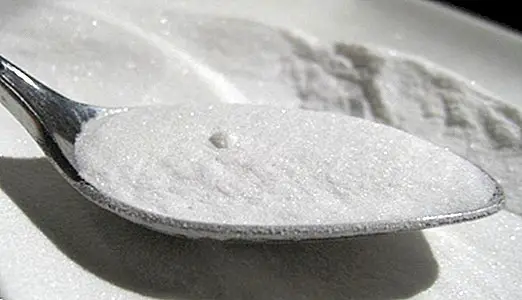Gastritis that lasts for months or years
Among the various diseases that affect the stomach, the most common and suffered of all is the gastritis. Most people suffer at least once in their life from stomach pains which are more specialized as gastritis; thus, this condition of modern medicine has become part of the general scientific culture, where it is recognized as a chronic disease in its most complicated stages.
It is called chronic gastritis to inflammation of the gastric mucosa, which affects superficial and glandular areas of the mucosa, leading to glandular destruction and metaplasia, lasting longer in people than irregular acute gastritis.

This disease can be observed and diagnosed through endoscopies of the upper digestive system, through which it can be observed basically if only part of the stomach is affected or if the entire gastric sphere is involved.
Types of chronic gastritis
There are two types, described below:
Type A: affects the body and the bottom of the stomach without involving the antrum; It is usually associated with pernicious anemia and is presumed to have an autoimmune etiology.
Type B: It is the most frequent form of chronic gastritis and affects the antrum in young patients and the entire stomach mucosa in elderly people; It is caused by the bacterium Helicobacter pylori.
Why is gastritis chronic?
The causes of chronic gastritis are similar to those of any other type of gastritis, the difference is that these causes prolong the pain for longer. Among the most common causes can be observed:
- Excessive consumption of anti-inflammatory medications, which can cause irritation of the stomach lining. Medications such as aspirin, ibuprofen, naproxen, etc.
- The excessive and continuous consumption of alcoholic beverages.
- Infection with the bacterium Helicobacter pylori, which infects the gastric epithelium and can survive this acidic environment.

Other common causes are:
- Autoimmune disorders such as pernicious anemia
- The reflux of bile into the stomach
- The consumption of alkaloid drugs such as cocaine
- The ingestion of corrosive or caustic liquids, such as poison
- Viral infections
In addition to this, bad eating habits and stress can cause chronic gastritis in people as well as the consumption of stimulants rich in caffeine such as coffee and analgesic pills, popular for its main component: paracetamol. Gaseous beverages containing phosphates and phosphoric acids as thirst stimulants also cause the symptoms of gastritis after their excess.
What are your symptoms
Sometimes patients do not present any type of symptoms to chronic gastritis. In the same way, the most normal thing is that there is burning or pain in the epigastrium, lack of appetite, nausea and vomiting, pains in the upper part of the belly or abdomen, and if gastritis causes bleeding from the stomach lining, it can also be observed symptoms such as black stools and vomiting with blood, where the condition already acquires its chronic character.
In case of infection by the bacteria Helicobacter pylori, the symptoms are similar to dyspepsia with pain in the epigastrium.

How is the treatment?
Medical treatment varies according to the cause that is causing the onset of chronic gastritis. Some of these causes disappear with time and in patients who do not present any type of symptoms, no treatment is usually prescribed.
Patients should consult with their doctor about whether it is advisable to stop taking medicines such as acetylsalicylic acid, ibuprofen or another medicine that damages the gastrointestinal walls.
Drugs that are available over the counter and prescribed by medical specialists may be used. decrease the amount of acid in the stomach; such as: antacids, H2 antagonists (famotidine, cimetidine, ranitidine and rizatidine), and proton pump inhibitors IBP (omeprazole, esomeprazole, iansoprazole, rabeprazole and pantoprazole).
The treatment for chronic gastritis caused by pernicious anemia consists of the administration of vitamin B12.
When the cause is due to the bacterium Helicobacter pylori, it is usually used a therapy with broad spectrum antibiotics.
In addition to all these treatments available for chronic gastritis, it is important that we maintain a good health regime and a good diet; This last couple of factors will be the one that will guarantee clinically not suffer neither the symptoms nor the condition of chronic gastritis. This article is published for informational purposes only. It can not and should not replace the consultation with a Physician.We advise you to consult your Trusted Doctor. ThemesGastrointestinal disorders


